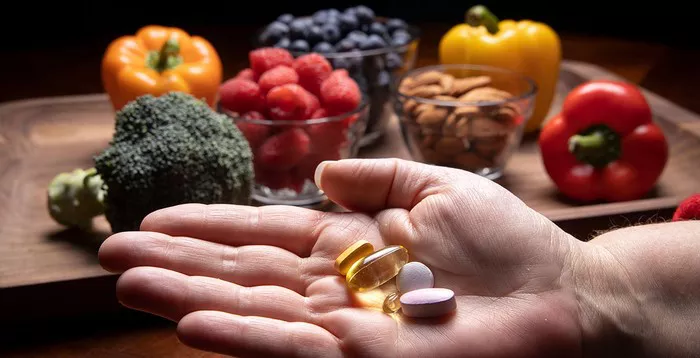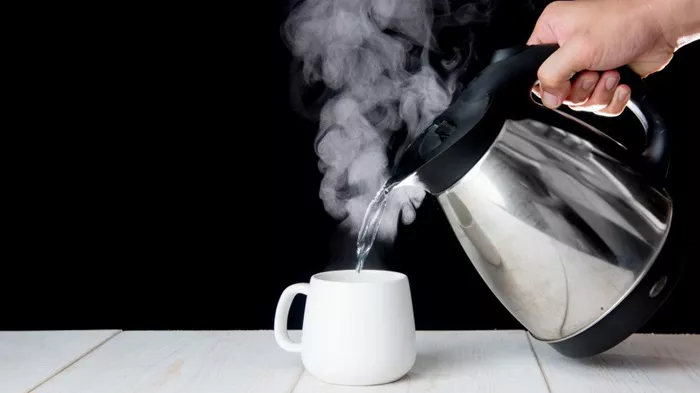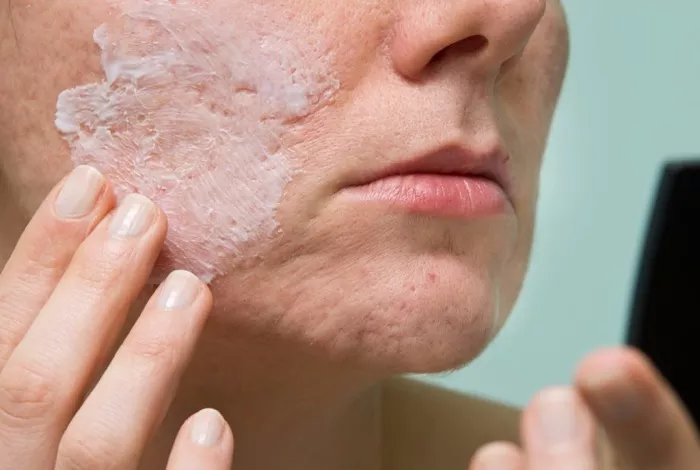Major Depression, also known as Clinical Depression, is a serious mental health disorder that goes beyond normal fluctuations in mood. It affects millions of people worldwide, impacting their daily functioning, relationships, and overall quality of life. While the exact causes of major depression are multifaceted and not fully understood, this article delves into the intricate web of factors that contribute to its development. By exploring biological, psychological, environmental, and genetic influences, we aim to shed light on the complexities surrounding the origins of major depression and offer some available treatments.
1. Biological Factors for Major Depression: The Neurochemical Imbalance
Neurotransmitters are chemicals that play a crucial role in transmitting signals between nerve cells in the brain. A significant factor in major depression is an imbalance in neurotransmitters, particularly serotonin, norepinephrine, and dopamine. These chemicals regulate mood, emotions, and overall brain function. When there’s a disruption in their balance, it can lead to symptoms of depression, such as low mood, lack of interest, and fatigue.
2. Genetic Predisposition for Major Depression: Inherited Vulnerabilities
Genetics also plays a substantial role in the development of major depression. Family history of depression is a strong indicator of susceptibility. Studies involving twins have shown that individuals with a first-degree relative who has had depression are at a higher risk of developing the disorder themselves. However, it’s important to note that genetics alone do not determine depression; they interact with other factors, both internal and external.
3. Psychological Factors for Major Depression: The Mind-Body Connection
Psychological factors contribute significantly to the onset of major depression. Negative thought patterns, low self-esteem, and distorted perceptions of reality can trigger and exacerbate depressive symptoms. Often, individuals who experience chronic stress, trauma, or adverse life events are more vulnerable to developing depression. The way a person copes with stress and manages emotions also influences their susceptibility to the disorder.
4. Neuroplasticity and Brain Structure for Major Depression: Rewiring the Brain
Research has shown that major depression can impact the structure and function of the brain. Prolonged exposure to stress hormones can lead to changes in brain regions responsible for mood regulation and emotional processing, such as the hippocampus and prefrontal cortex. Conversely, effective treatment, such as psychotherapy and medication, can facilitate neuroplasticity—the brain’s ability to adapt and rewire itself—helping individuals recover from depression.
5. Chemical Imbalance for Major Depression: The Role of Hormones
Hormones, which regulate various bodily functions, also have a role in major depression. Cortisol, the stress hormone, is elevated in individuals with depression. This constant elevation can impact mood regulation and contribute to symptoms of the disorder. Additionally, imbalances in thyroid hormones have been linked to depression, as these hormones influence metabolism and brain function.
6. Environmental Triggers for Major Depression: Nurturing the Disorder
Environmental factors can serve as triggers for major depression, especially when combined with genetic susceptibility. Examples include:
Trauma and Abuse: Traumatic experiences, such as physical, emotional, or sexual abuse, can have a profound impact on mental health and increase the risk of depression.
Loss and Grief: Experiencing the loss of a loved one or a significant life event, such as divorce or job loss, can trigger a depressive episode.
Chronic Stress: Prolonged exposure to chronic stress, whether due to work, relationships, or financial difficulties, can contribute to the development of major depression.
7. Social Isolation and Support for Major Depression: The Role of Relationships
Social factors also play a pivotal role in depression. Isolation, lack of social support, and strained relationships can exacerbate depressive symptoms. On the other hand, maintaining a strong support network, engaging in social activities, and nurturing positive relationships can have a protective effect against depression.
8. Inflammatory Factors for Major Depression: The Immune System Connection
Emerging research suggests a link between inflammation and major depression. Chronic inflammation, often associated with conditions like autoimmune disorders, may contribute to the development of depression. Inflammation affects the balance of neurotransmitters and can impact brain function, potentially leading to depressive symptoms.
Treatment Approaches and Support for Major Depression
A range of effective treatment approaches and comprehensive support systems are available to help individuals manage their symptoms, regain a sense of control, and work towards recovery. This article delves into the various treatment modalities and support mechanisms that form the foundation of managing major depression.
Professional Treatment Approaches
1. Psychotherapy (Talk Therapy)
Cognitive Behavioral Therapy (CBT): CBT helps individuals identify and challenge negative thought patterns and behaviors. By altering distorted perceptions and adopting healthier cognitive strategies, individuals can manage depressive symptoms and develop coping skills.
Interpersonal Therapy (IPT): IPT focuses on improving interpersonal relationships and addressing social difficulties that contribute to depression. It helps individuals navigate relationship challenges, enhance communication, and build a support network.
Mindfulness-Based Cognitive Therapy (MBCT): MBCT combines CBT techniques with mindfulness practices. It empowers individuals to become more aware of their thoughts and emotions, reducing the risk of relapse.
SEE ALSO: 4 Major Types of Psychological Therapies: Cornerstones of Psychological Healing
2. Medication
Antidepressants: Selective serotonin reuptake inhibitors (SSRIs), serotonin-norepinephrine reuptake inhibitors (SNRIs), and other classes of antidepressants can help regulate neurotransmitter imbalances and alleviate symptoms of major depression. Consultation with a psychiatrist is essential to determine the most suitable medication.
3. Electroconvulsive Therapy (ECT)
ECT is a treatment option for severe depression that does not respond to other interventions. It involves delivering controlled electrical currents to the brain, inducing a brief seizure. ECT can lead to rapid improvement in severe cases of depression.
4. Transcranial Magnetic Stimulation (TMS)
TMS is a non-invasive procedure that uses magnetic fields to stimulate specific areas of the brain. It can be effective for individuals who have not responded to other treatments.
5. Ketamine Therapy
Ketamine, an anesthetic agent, has shown promise in rapidly alleviating depressive symptoms, particularly in treatment-resistant cases. It is administered under medical supervision.
Complementary and Lifestyle Approaches
1. Physical Activity
Regular exercise has been shown to boost mood and reduce symptoms of depression. Engaging in physical activity releases endorphins, which are natural mood enhancers.
SEE ALSO: 8 Amazing Benefits of Exercise to Mental Health, According to Studies
2. Nutrition
A balanced diet rich in nutrients can support overall well-being. Certain nutrients, such as omega-3 fatty acids, are associated with improved mood. Consultation with a nutritionist can help create a tailored diet plan.
3. Sleep Hygiene
Prioritizing quality sleep is essential for managing depression. Establishing a consistent sleep routine, creating a comfortable sleep environment, and avoiding stimulants before bedtime can promote better sleep.
Support Systems: A Vital Pillar
1. Professional Support
Seeking help from mental health professionals, including psychologists, psychiatrists, and therapists, is crucial for accurate diagnosis and personalized treatment plans.
2. Social Support
Maintaining connections with friends, family members, and support groups can provide emotional validation, reduce isolation, and foster a sense of belonging.
3. Lifestyle Changes
Encouraging loved ones to engage in positive lifestyle changes, such as exercise and healthy eating, can create a supportive environment that complements treatment.
4. Self-Care
Encouraging self-care practices, such as mindfulness, relaxation techniques, and engaging in activities that bring joy, can contribute to overall well-being.
5. Education and Psychoeducation
Learning about depression, its causes, and treatment options empowers individuals to take an active role in managing their condition.
Conclusion
The causes of major depression are intertwined in a complex web of biological, genetic, psychological, environmental, and social factors. Understanding the interplay between these factors is crucial for effective treatment and prevention. It’s important to emphasize that depression is a legitimate medical condition, and seeking professional help is vital for diagnosis and management. By addressing the underlying causes and providing comprehensive treatment approaches that combine psychotherapy, medication, lifestyle changes, and support, individuals with major depression can find relief and work towards improved mental health and well-being.
[inline_related_posts title=”Related Topics” title_align=”left” style=”list” number=”3″ align=”none” ids=”1714,1711,1675″ by=”categories” orderby=”rand” order=”DESC” hide_thumb=”no” thumb_right=”no” views=”no” date=”yes” grid_columns=”1″ post_type=”” tax=””]

































